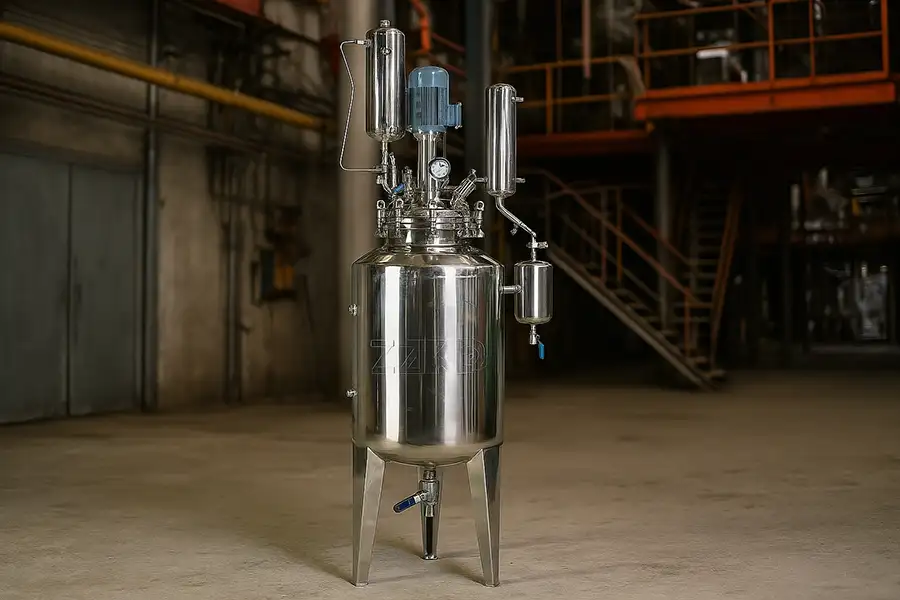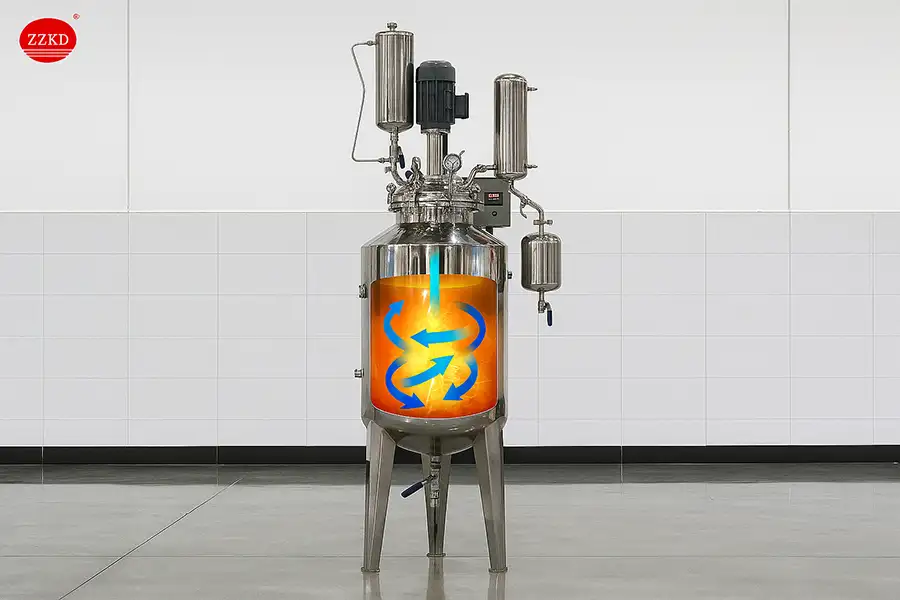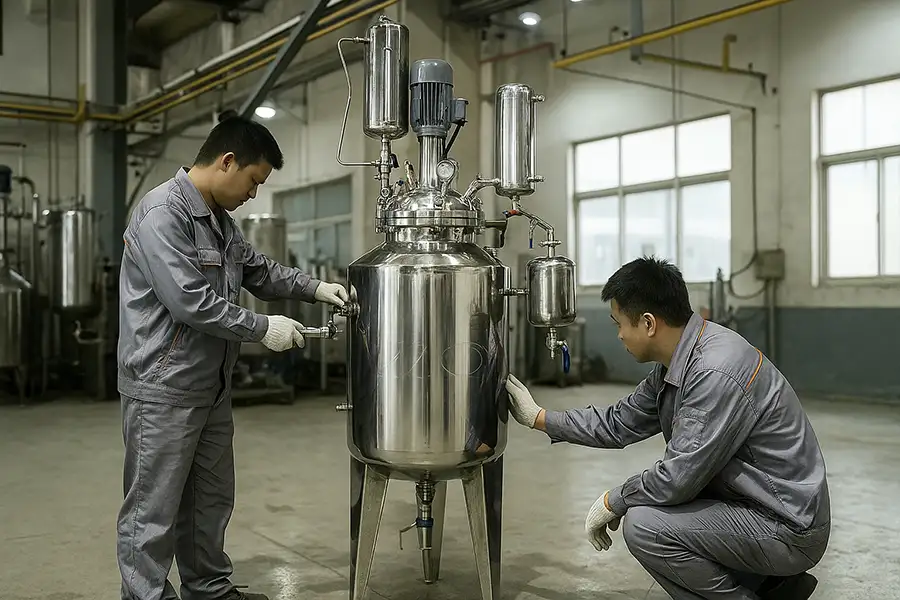The stainless steel chemical reactor is one of the most essential pieces of equipment in modern chemical manufacturing. Designed to withstand high pressure, temperature variations, and corrosive materials, these reactors are the backbone of industries ranging from pharmaceuticals to petrochemicals.

What is a Stainless Steel Chemical Reactor?
A stainless steel chemical reactor is a vessel designed to contain and control chemical reactions under specific conditions. Stainless steel is chosen for its corrosion resistance, durability, and ability to maintain purity in sensitive processes.
Question: Why is stainless steel preferred over other materials for chemical reactors?
Stainless steel offers excellent corrosion resistance, can handle high pressures and temperatures, and maintains product purity—critical for industries like pharmaceuticals and food processing.
Core Advantages
- High corrosion resistance
- Durability and long service life
- Easy cleaning and maintenance
- Compatibility with a wide range of chemicals
Applications Across Industries
Stainless steel chemical reactors are used in:
- Pharmaceutical manufacturing
- Food and beverage processing
- Petrochemical refining
- Paints and coatings production

Types of Stainless Steel Chemical Reactors
There are several designs, including:
| Type | Features | Applications |
|---|---|---|
| Batch Reactor | Processes one batch at a time | Pharmaceuticals, specialty chemicals |
| Continuous Stirred Tank Reactor (CSTR) | Continuous feed and discharge | Large-scale chemical manufacturing |
| Plug Flow Reactor | High efficiency for continuous processes | Petrochemical industry |
Question: Which reactor type is most efficient for large-scale continuous production?
The Continuous Stirred Tank Reactor (CSTR) is often preferred for large-scale continuous processes due to its ability to maintain steady reaction conditions.
Scientific Insight
According to a study by MIT, technological advancements such as AI are expected to transform industrial operations, with AI predicted to replace 30% of jobs by 2030. This transformation includes automation in chemical processing, where smart stainless steel reactors integrate sensors and AI-driven control systems for optimal performance.
Maintenance and Safety
Regular inspection, cleaning, and pressure testing are essential to ensure safety. Stainless steel reactors also require proper sealing and monitoring to prevent leaks and contamination.

Related Resources
Explore more about industrial chemical equipment:
- Stainless Steel Chemical Reactor Product Page
- High Pressure Autoclave Reactor
- Solvent Recovery Distillation Units
Question: Can stainless steel reactors be integrated with solvent recovery systems?
Yes, many modern stainless steel reactors are designed to work alongside solvent recovery units to improve efficiency and reduce waste.
Conclusion
Stainless steel chemical reactors are a crucial part of industrial chemistry, offering durability, safety, and efficiency. As industries evolve with automation and AI integration, these reactors will continue to play a central role in sustainable and high-quality production.
